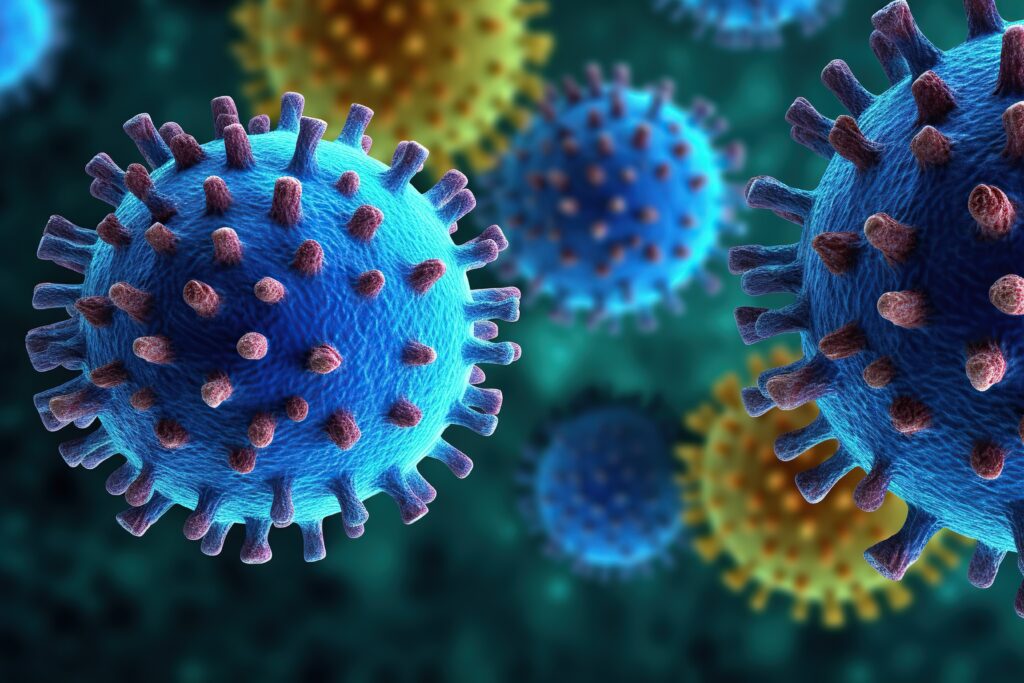
1. Virus origin
The exact origin of COVID-19, the disease caused by the SARS-CoV-2 virus, is still subject to investigation and debate within the scientific community. However, current evidence suggests that the virus originated in a wild animal and was transmitted to humans through a zoonotic event, i.e., the transmission of a pathogen from an animal to humans.
The precise origin of the virus has been the subject of speculation and thorough investigations. The city of Wuhan, in the Chinese province of Hubei, was identified as the initial epicenter of COVID-19 in December 2019 and has attracted attention as a possible origin of the virus. However, it is important to emphasize that the identification of the initial outbreak in Wuhan does not necessarily imply that the virus originated in that city.
Some of the factors that have led to this hypothesis include the association of the Huanan seafood wholesale market in Wuhan with several early cases of COVID-19 and the city hosting several research institutes studying coronaviruses in bats, known natural reservoirs of viruses related to COVID-19.
2. Origin theories
Several theories have been proposed to explain the origin of COVID-19, but as mentioned earlier, it is important to emphasize that there is no definitive conclusion yet, and investigations are still ongoing. Some of the main theories are:
• Natural origin from wild animals: this is the theory most accepted by the scientific community. It is hypothesized that the virus originated in a wild animal, likely a bat or another intermediate host animal, and was transmitted to humans through a zoonotic event, possibly at a live animal market in Wuhan, China
• Laboratory leak: some people argue that the virus may have leaked from a laboratory, such as the Wuhan Institute of Virology, which conducted research on bat coronaviruses. However, most scientists consider this theory unlikely and unsupported by convincing evidence
• Genetic manipulation: there has also been speculation about an artificial origin of the virus, suggesting that it may have been created in a laboratory through genetic manipulation. However, current evidence suggests that the virus is of natural origin and has not been manipulated in a laboratory
• Accidental contamination: some scientists believe that the virus may have been accidentally transmitted from infected animals to laboratory workers, travelers, or people involved in the wildlife trade, before spreading to the human population.
3. Scientific investigations
Scientific investigations into COVID-19 represent an unprecedented global effort to better understand the virus, the disease it causes, and its implications for public health. These investigations involve a wide range of scientific disciplines and focus on various key aspects related to the virus.
Firstly, there are efforts to identify the origin of the SARS-CoV-2 virus and understand how it was transmitted to humans. This includes studying related viruses in animal reservoirs and analyzing viral genomics to trace its evolution.
Research is also aimed at understanding the virus transmission mechanisms, including the ways in which it spreads among people and its ability to survive in different environments.
Scientists are also investigating the pathogenesis of the virus, namely what causes the disease and its effects on the human body. This includes studying clinical symptoms, associated complications, and the immune response to infection.
In parallel, there are concentrated efforts on developing effective treatments for COVID-19, including antiviral drugs, immunomodulatory therapies, and other therapeutic approaches. This involves both researching existing drugs that could be repurposed for COVID-19 treatment and developing new drugs specific to the virus.
Another key area of research concerns the development of COVID-19 vaccines. Scientists are working on various vaccine platforms, such as messenger RNA vaccines and viral vector vaccines, to develop safe and effective options to protect the population from the disease.
4. Implications for public health
The public health implications of COVID-19 have been broad and varied, influencing multiple aspects of daily life and society as a whole.
Firstly, the pandemic has highlighted the importance of epidemiological surveillance and the capacity for rapid response to health emergencies. Surveillance systems have been established to monitor the spread of the virus and identify infection outbreaks, enabling health authorities to take timely control measures.
Infection prevention and control measures have become an integral part of daily life, with widespread adoption of practices such as physical distancing, mask-wearing, and hand hygiene. These measures have had a significant impact on socialization, work activities, and access to healthcare services.
5. Lesson learned from the pandemic
During the COVID-19 pandemic, we have learned many important lessons that have profoundly influenced our understanding of the world and our priorities. Firstly, we have learned that preparation and response to health emergencies are fundamental in effectively addressing global crises. We have seen how essential it is to invest in scientific research and international cooperation to better understand the virus, develop effective treatments and vaccines, and coordinate a global response. The pandemic has also taught us the importance of flexibility and adaptability in dealing with continuously evolving situations, as well as the importance of building resilient and supportive communities that can sustain each other during difficult times. Additionally, we have recognized the need to address existing inequalities in access to healthcare services and the impact of the disease on vulnerable groups, as well as acknowledging the crucial role of digital technologies in improving access to healthcare services and managing health emergencies. Ultimately, the pandemic has provided us with a valuable lesson on the importance of resilience, solidarity, and global cooperation in facing challenges and building a safer and healthier future for everyone.
